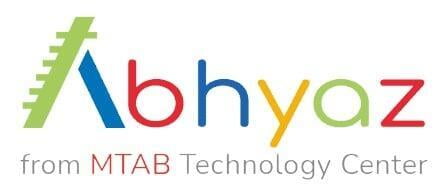A Blueprint to be successful in the World of Finance.
In the dynamic landscape of the financial world, possessing a comprehensive set of skills is paramount for professionals aiming to excel and make a significant impact. In 2023, the demands placed upon finance professionals have intensified, calling for a diverse skill set that extends beyond traditional numerical prowess. This article delves into the top essential skills that every finance professional should cultivate in order to thrive and navigate the challenges presented by the modern financial sector.
The Ever-Evolving Financial Landscape -
The global financial landscape has undergone remarkable transformation over the years. From the rapid integration of technology to the emergence of new financial instruments, the dynamics of finance have become more intricate than ever before. In 2023, finance professionals are expected to have a keen understanding of these complexities, with the ability to adapt swiftly to changing scenarios. Therefore, possessing a multifaceted skill set has become a prerequisite for carving a successful career path in the financial world.
1.Adaptability and Learning Agility -
The financial landscape is continually evolving, with new technologies and regulations reshaping the industry. Employers value candidates who demonstrate adaptability and a willingness to learn. Highlight any experiences or instances where you embraced change and rapidly acquired new skills to adapt to evolving financial circumstances. Consider enrolling in courses on platforms like Udemy or Coursera to showcase your commitment to staying updated with industry changes and advancements. Alternatively, you can explore opportunities with institutions like Abhyaz Academy, where you can gain hands-on experience with tools like Zoho and earn certifications while preparing for placements and freelancing opportunities.
The capacity to craft exhaustive financial models supports strategic plotting, risk evaluation, and envisioning various scenarios. These capabilities assist organizations in making prudent decisions amidst uncertainty.
2.Data Interpretation and Technological Fluency -
The finance world has changed a lot due to the digital revolution. In 2023, finance experts need to be okay with technology and use it to find important information from big sets of data. Understanding and working with data, plus knowing how to use tools to show data visually, helps finance experts find hidden patterns, predict trends, and make smart decisions.
3. Risk Management and Compliance -
The complexities of modern finance are accompanied by increased risks and regulatory challenges. A proficient finance professional must possess skills in risk assessment, mitigation, and compliance with regulatory frameworks. Staying updated with changing regulations and demonstrating a thorough understanding of risk management strategies are crucial for safeguarding an organization's financial stability and reputation.
4. Communication -
While technical expertise is imperative, the ability to communicate complex financial information in a clear and concise manner is equally essential. Finance professionals often find themselves translating intricate financial concepts to non-finance stakeholders, such as executives and clients.
Effective communication skills, along with the knack for creating compelling presentations, facilitate seamless knowledge sharing and decision-making across various organizational levels.5. Strategic Financial Planning -
In the rapidly evolving financial landscape, the role of finance professionals has extended beyond number-crunching. They are increasingly relied upon to play a strategic role in an organization's growth and success. Proficiency in strategic financial planning entails aligning financial goals with broader business objectives, identifying investment opportunities, and optimizing capital allocation to ensure long-term sustainability and competitiveness.
6. Ethical Decision-Making -
As finance professionals manage sensitive financial information and contribute to significant business decisions, upholding ethical standards is non-negotiable. The skill of ethical decision-making involves navigating complex situations while maintaining transparency, integrity, and accountability. This skill not only safeguards an individual's professional reputation but also bolsters trust within the broader financial ecosystem.
7.Analytics Skills -
In today's data-driven world, the ability to analyze financial reports and make data-driven decisions is highly valued. Employers expect finance graduates to possess strong analytical skills to interpret financial data accurately. Familiarize yourself with tools and techniques commonly used in the field, such as Microsoft Excel, financial modeling software, and data visualization tools like Tableau or Power BI. Being proficient in these tools can give you a competitive edge and demonstrate your capacity to handle complex financial analysis.
8. Financial Forecasting -
A crucial aspect of financial management is forecasting. Employers seek candidates who can predict financial trends and make informed predictions about future financial performance. Brush up on your forecasting skills by studying historical data, market trends, and economic indicators. Showcasing your ability to develop accurate financial projections can greatly impress recruiters. Consider learning forecasting tools like SAS Forecast Studio, Oracle Crystal Ball, or Zoho Analytics to strengthen your forecasting capabilities.
9.Business Strategy and Modeling for success -
Fundamental to a finance professional's toolkit is the skill of dissecting financial information and building precise models. This mastery in financial analysis empowers experts to make prudent choices through deciphering complex financial reports, evaluating a company's vitality, and spotting patterns.
10. Financial Planning and Analysis -
As a finance graduate, you should have a solid grasp of financial planning and analysis. Showcasing your proficiency in budgeting, financial forecasting, and variance analysis can strengthen your chances of securing a rewarding position in the financial industry. Explore financial planning tools like Zoho Financial Management, Adaptive Insights, or Anaplan to streamline budgeting and forecasting processes.
Conclusion -
By incorporating these essential skills into your resume and emphasizing them during interviews, you can significantly improve your chances of landing a rewarding career in finance. Remember to showcase your analytical prowess, financial forecasting abilities, effective communication, risk management expertise, financial planning and analysis skills, adaptability, and ethical decision-making. By demonstrating a comprehensive skill set, you'll stand out as a finance graduate well-prepared to navigate the dynamic and competitive world of finance. Best of luck on your journey to a successful finance career!
FAQs :-
Q1: Why are analytics skills important for finance graduates?
A1: Analytics skills are crucial in the financial industry as they enable finance graduates to interpret and analyze financial reports accurately, make data-driven decisions, and identify trends that can drive business strategies.
Q2: What specific tools should finance graduates be familiar with for data analysis and visualization?
A2: Finance graduates should be proficient in using tools like Microsoft Excel,Zoho Sheet, financial modeling software , and data visualization platforms (e.g., Tableau or Power BI or Zoho Analytics) to enhance their data analysis and presentation capabilities.Q3: How does financial forecasting benefit finance graduates in their careers?
A3: Financial forecasting allows finance graduates to predict future financial trends and make informed decisions, demonstrating their ability to plan and strategize effectively, which is highly valued by employers.
Q4: Can you suggest some software for financial forecasting?
A4: Yes, some software options for financial forecasting include SAS Forecast Studio, Oracle Crystal Ball, and Zoho Analytics. These tools can help finance graduates make accurate predictions based on historical data and market trends.Q6: Besides Microsoft Office, what other communication platforms should finance graduates explore?
A6: Collaborative communication platforms like Zoho, Slack and Microsoft Teams are excellent tools for finance graduates to enhance their communication and teamwork within organizations.
